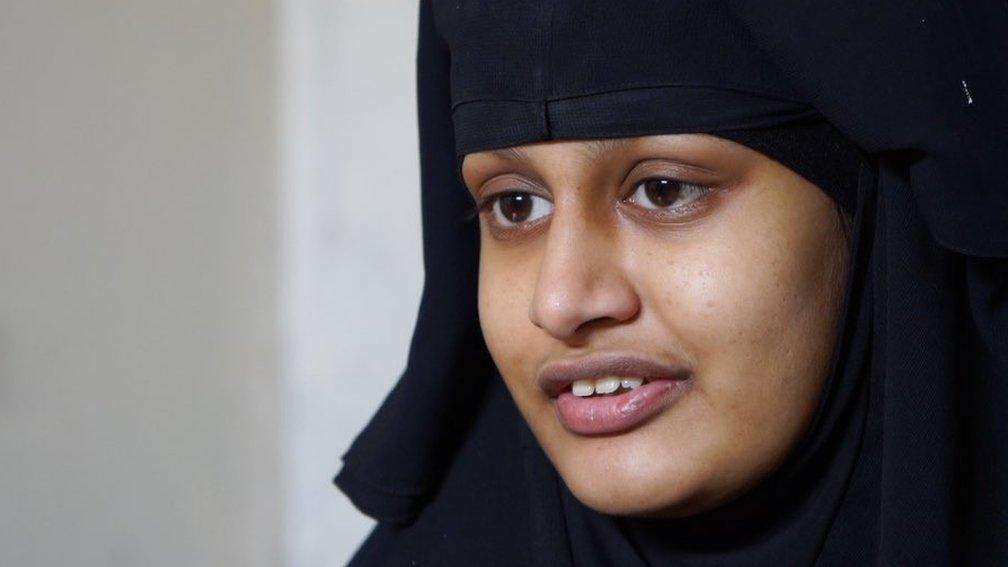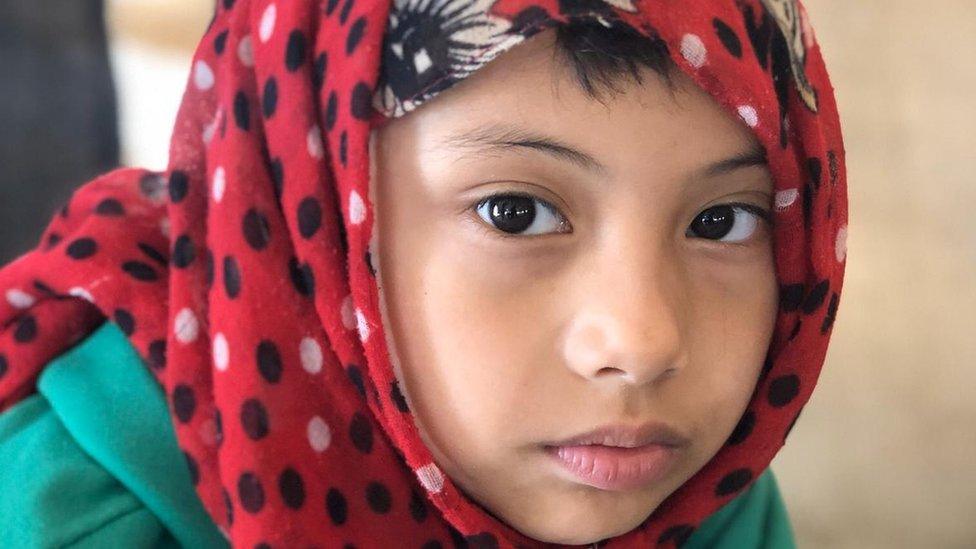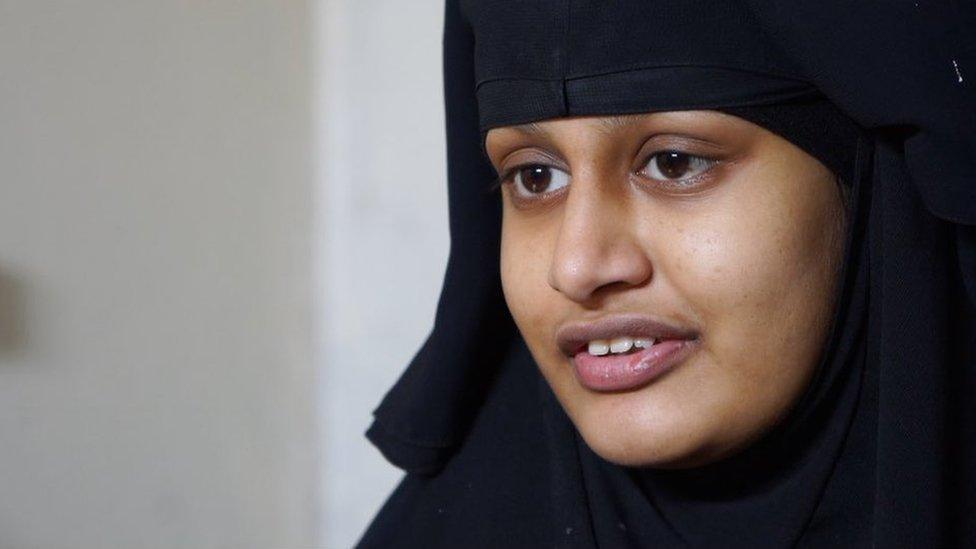Shamima Begum: Stripping citizenship put her at risk of hanging, court hears
- Published
Shamima Begum's lawyers say she professed sympathy for IS to protect herself and her son (Video from February 2019)
Removing Shamima Begum's citizenship after she went to Syria left her stateless and at risk of hanging, a court has heard.
Her lawyer said Ms Begum, now 20, is in "an incredibly fragile and dangerous" position in a Syrian refugee camp.
After leaving London as a 15-year-old, Ms Begum lived under the rule of the Islamic State group for three years, before being found in February.
The Home Office denies that the decision left her stateless.
It says that she could claim Bangladeshi nationality through her family, but her lawyers told the court that Bangladesh said it will not allow Ms Begum into the country and she would face hanging if she tried to enter secretly.
A four-day preliminary hearing is taking place at the Special Immigration Appeals Commission, a semi-secret court that deals with cases where the UK government wants to keep someone out of the country on national security grounds.
In submissions to the court, Ms Begum's lawyers said she had only professed sympathy for the Islamic State group in media interviews to protect herself and her newborn son, who later died in the refugee camp.
In February 2015, Ms Begum left Bethnal Green in east London for Syria with two friends.
Within days she had crossed the Turkish border and eventually reached the IS headquarters at Raqqa, where she was married to a Dutch convert recruit. They had three children - all of whom have since died.
After she was found in February, former home secretary Sajid Javid stripped her of her UK citizenship.
Tom Hickman QC told the court that Ms Begum was challenging the decision on three grounds, including that it had made his client stateless.

Ms Begum was 15 and living in Bethnal Green, London, when she left the UK in 2015
He also argued that removing her citizenship led to a "real risk of death" or suffering other human rights abuses.
And he said that she was denied an effective right to challenge the citizenship decision because it was taken while she was in a Syrian refugee camp.
Ms Begum is unable to speak confidentially with her lawyers or to give evidence in support of her appeal, Mr Hickman said.

Inside the court deciding Shamima Begum's fate

The Special Immigration Appeals Commission (SIAC) can be found in an airless basement of an anonymous block behind the Royal Courts of Justice.
It's fitting because a great deal of its work happens behind locked doors as judges hear secret intelligence assessments from MI5 that inform decisions by the home secretary to ban someone from the UK.
Ms Begum's lawyers must prove she does not have Bangladeshi citizenship as an alternative to being a Brit. The government has to prove it has not left her "stateless", contrary to basic law.
SIAC has previously ruled that a British national of Bangladeshi heritage can't be stripped of their nationality if they're over 21 years old and do not already hold proof of the other nation's citizenship.
Ms Begum's case is different. She was 19 when she lost her citizenship. Her lawyers argue that Bangladeshi ministers have made clear they won't accept her - and predict that the country's Supreme Court wouldn't overrule the politicians.
If SIAC rules against Ms Begum on this point, it will go on to consider whether she is a genuine threat to national security.

The UK government claims that under Bangladeshi law, Ms Begun is a citizen by descent, and so she cannot be made stateless by losing her British citizenship.
In its submissions to court, it said any risks she faces are "wholly unrelated" to the citizenship decision and are a consequence of travelling to Syria and joining IS.
But her lawyers say Ms Begum has never visited Bangladesh and does not speak Bengali.
"The Bangladeshi government has made clear it will not allow the appellant to go to that country. It has said that if she arrived covertly she would be hanged," they said in legal papers.
'Wretched and squalid'
The UK government has also claimed that Camp Roj in northern Syria, where Ms Begum now lives, is "likely to be unguarded" - meaning she was free to leave.
But Mr Hickman said there was no evidence for this and that the environment was "incredibly fragile and dangerous".
The conditions in the camp are "wretched and squalid" as the death of her child demonstrates, he said.
Ms Begum has been "abandoned" there because the citizenship decision was "designed" to prevent her returning to the UK, he added.
A second stage of Ms Begum's legal challenge, to be heard at a later date, will look at the government's allegations that she poses an ongoing threat to national security.
- Published31 May 2019

- Published15 October 2019

- Published3 May 2019
